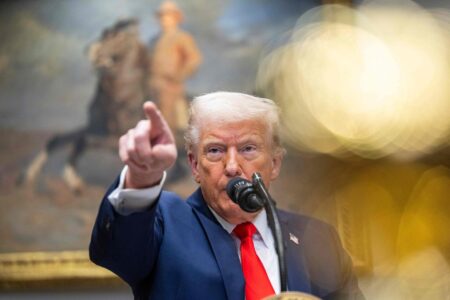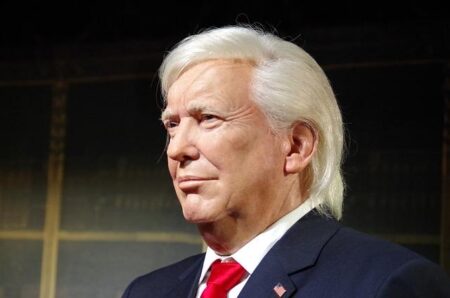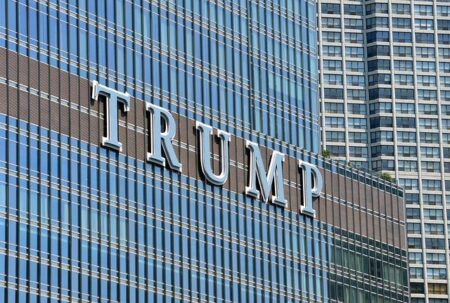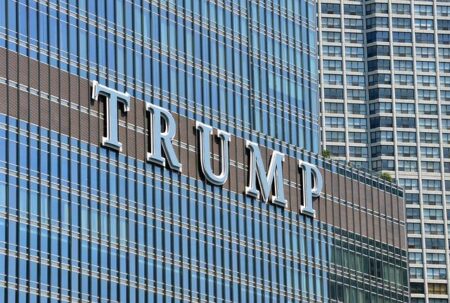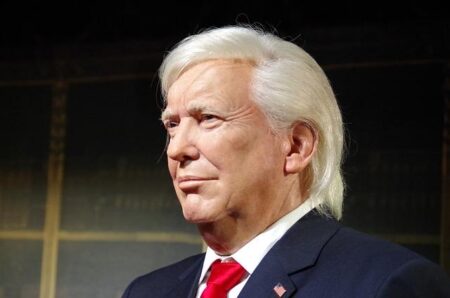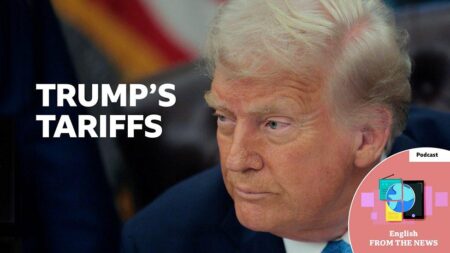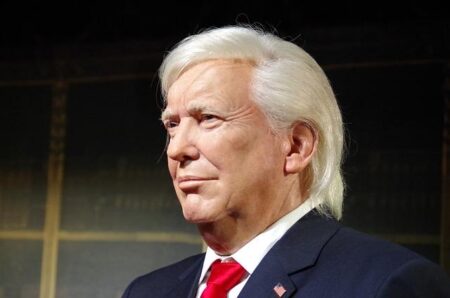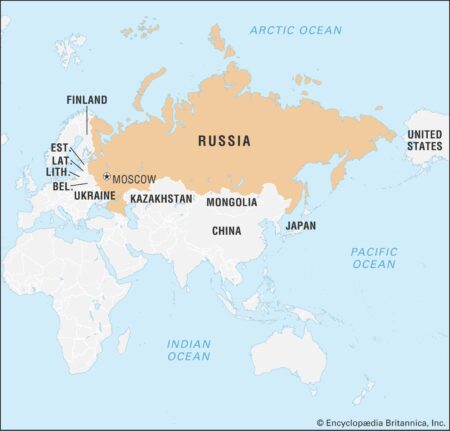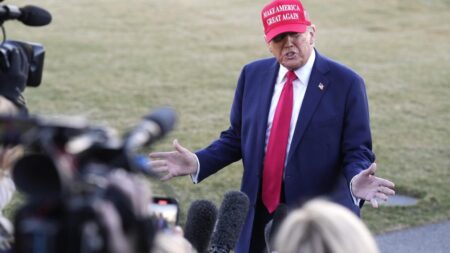Trump’s tariffs have ignited a wave of anger and retaliation among trading partners, fueling market unease. As nations respond with their own tariffs, analysts warn of potential disruptions in global trade and the economic ramifications that could follow.
Browsing: Trump
Global stock markets took a hit as President Trump announced new tariffs on Canada, Mexico, and China, escalating trade tensions and raising concerns about potential economic repercussions. Investors reacted swiftly, driving down major indices.
In a Bosnia region known for its pro-Russian sentiment, locals are expressing enthusiasm over Donald Trump’s potential return to the White House. The community views his policies as favorable towards their interests, reflecting growing geopolitical complexities.
In U.S. News & World Report, seasoned negotiator emphasizes the need for a more strategic approach in dealings with Russia. Drawing from past experiences, the article critiques Trump’s tactics, arguing that effective diplomacy requires nuance and patience.
The Associated Press reports that Trump’s tariffs on Mexico, Canada, and China target a range of goods, including agricultural products, electronics, and vehicles. This trade policy aims to bolster domestic industries but risks escalating tensions and consumer prices.
In a recent commentary, CNBC’s Lutnick suggested that President Trump may announce a reduction of tariffs on Canada and Mexico as early as Wednesday. This potential shift could reshape trade relations and impact key industries in both nations.
Former President Trump’s proposal to freeze aid to Ukraine is met with significant opposition in Washington. Lawmakers from both parties express concerns over the implications for U.S. foreign policy and global security amid ongoing conflict in the region.
Tension has surfaced within Italy’s Jewish community following a controversial ad stating “No ethnic cleansing” in response to Trump’s Gaza plan. The slogan has sparked heated debate, reflecting deep divisions over the Israeli-Palestinian conflict and local sentiments.
Trump’s China tariffs have sparked retaliatory measures impacting U.S. farm products. Chinese tariffs on American agricultural goods threaten to undermine the struggling farming sector, intensifying trade tensions between the two nations.
In a recent statement, Canadian Prime Minister Justin Trudeau criticized former President Trump’s tariffs as “dumb,” suggesting they are part of a broader strategy aimed at facilitating a potential U.S. annexation of Canada. Trudeau’s remarks underscore heightened tensions between the neighboring nations.
In a significant move, President Trump has announced a 10% increase in tariffs on Chinese imports, escalating trade tensions between the two countries. This strategy aims to protect U.S. industries but may further complicate global supply chains and consumer prices.
In a significant shift in trade policy, President Trump’s tariffs on imports from Canada, Mexico, and China have taken effect, aiming to protect American industries. Critics argue these measures could disrupt supply chains and raise consumer prices.
Germany’s upcoming election promises to significantly influence Europe’s stance toward a more assertive Trump administration. As voters head to the polls on Sunday, the future of key policies on transatlantic relations and global cooperation hangs in the balance.
In a recent statement, former President Donald Trump indicated that the United States is willing to engage in nuclear discussions. This marks a significant shift in rhetoric surrounding arms control, as experts evaluate the implications for global security.
France and Britain’s leaders are traveling to Washington to appeal to President Trump to maintain support for Ukraine amidst ongoing tensions with Russia. Their visit underscores the importance of international cooperation in safeguarding Ukraine’s sovereignty.
Starting Tuesday, Trump’s tariffs on imports from Canada and Mexico will take effect, affecting a range of goods. Consumers could see rising prices on products such as steel, aluminum, and certain food items as costs increase along the supply chain.
In a striking contradiction to the ongoing violence in Ukraine, former President Trump has claimed that Russian President Putin desires peace. Despite these assertions, the war continues unabated, resulting in the death of countless Ukrainian civilians.
Brazil is considering the reduction of its ethanol import tax, a move reportedly aimed at fostering closer ties with the U.S. under President Trump. This potential policy shift reflects ongoing discussions about trade relations and energy cooperation.
Russia’s recent seizures of assets serve as a stark reminder to Western firms considering a return amidst easing tensions. Analysts warn that reliance on political shifts, like a potential Trump-inspired approach, could lead to significant risks in volatile markets.
In response to controversial statements by former President Trump, many Canadians are rethinking travel plans to the U.S. Reports indicate a notable decrease in cross-border tourism, with travelers expressing feelings of alienation and disappointment.






